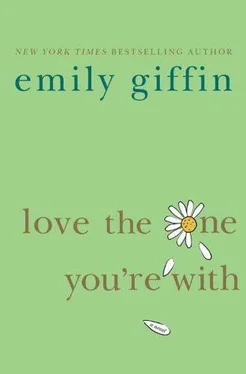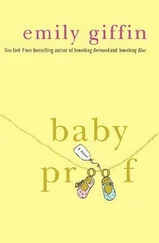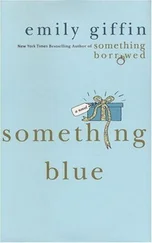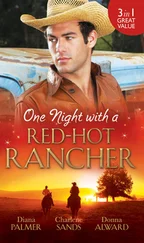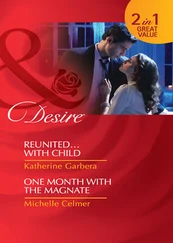But my suspicions seemed confirmed when, a few days later, I received a letter from Margot written in perfect, adult handwriting on pale pink stationery. Her engraved silver monogram was the elaborate cursive kind, where the G of her last name was larger and flanked by the M and H . I wondered which rich relative she had slighted by overthrowing the E . The tone was effusive (eight exclamation points in all) yet also strangely businesslike. She said she couldn't wait to meet me. She had tried to call me several times but hadn't been able to reach me (we didn't have call-waiting or an answering machine, a fact that embarrassed me). She said she would bring a small refrigerator and her stereo (which played CDs; I still hadn't graduated from cassettes). She was hoping we could buy matching comforters. She had found some cute pink and sage green ones by Ralph Lauren, and offered to pick up two for us if I thought this sounded nice. But if I wasn't a pink person, we could always go with yellow and lavender, "a fine combination." Or turquoise and coral, "equally pleasing." She just wasn't wild about primary colors in interior designing, but was open to my suggestions. She told me she "truly" hoped that I would enjoy the rest of my summer and then signed the letter "Warmly, Margot," a closing that, oddly enough, seemed more cool and sophisticated than warm. I had only ever signed letters with "Love" or "Sincerely" but made a mental note to try "Warmly" on for size. It would be the first of many things I'd copy from Margot.
I worked up the courage to phone her the next afternoon, clutching a pen and pad in my hand to be sure I didn't miss anything, such as a suggestion that we coordinate our toiletries-keep everything in the pastel family.
The phone rang twice and then a male voice said hello. I assumed it was Margot's father, or perhaps it was the gardener in for a tall glass of freshly squeezed lemonade. In my most proper telephone voice, I asked to speak to Margot.
"She's over at the club, playing tennis," he replied.
Club, I thought. Bingo. We belonged to a club, technically speaking, but it was really just the neighborhood pool, called a club, which comprised a small, rectangular pool flanked by a Fritos-serving snack bar on one end, a diving board on the other, all surrounded by a chain-link fence. I was fairly certain that Margot's club was a different sort altogether. I imagined the rows of clay tennis courts, the dainty sandwiches served on china plates, the rolling hills of the golf course spotted with weeping willows, or whatever tree was indigenous to Georgia.
"May I take a message?" he asked. His Southern accent was subtle, only revealing itself in his I .
I hesitated, stumbled slightly, and then shyly introduced myself as Margot's roommate-to-be.
"Oh, hey there! This is Andy. Margot's brother."
And there it was.
Andy . My future husband's name-which I would later learn was short for Andrew Wallace Graham III.
Andy went on to say that he went to Vanderbilt, but that his best friend from home was going to be a senior at Wake Forest, and he and his buddies would be sure to show us the ropes, share their insight about professors and sororities, keep us out of trouble, and "all that good stuff."
I thanked him, feeling myself ease somewhat.
"No problem," Andy said. And then, "So Margot's going to be excited to hear from you. I know she wanted to discuss bedspreads or curtains or something… I sure hope you like the color pink."
I replied with an earnest, "Oh. Yes . I love pink."
It was a fib that would be recounted for years to come, even working its way into Andy's toast to me at our rehearsal dinner, much to the delight of Margot and our closest friends, all of whom knew that although I had my feminine side, I was far from a girly-girl.
"Well. Aw- right," Andy said. "A match made in pink heaven."
I smiled and thought, no matter what else unfolded with Margot, she had a very nice brother.
As it turned out, I was right about both Andy and Margot. He was nice, and she was just about everything I wasn't. For starters we were physical opposites. She was a petite yet still curvy, fair-skinned, blue-eyed blonde. I had dark hair and hazel eyes, skin that looked tanned even in the dead of winter, and a tall, athletic frame. We were equally attractive, but Margot had a soft, whimsical look about her while my features were more easily described as handsome.
Our backgrounds, too, couldn't be more different. Margot lived in a huge, beautiful home on several acres of gorgeous, tree-lined property in the wealthiest part of Atlanta-an estate by any measure. I grew up in a small ranch with Brady Bunch-orange kitchen counters in a blue-collar part of Pittsburgh. Margot's father was a prominent attorney who also served on the board of several companies. My dad was a salesman-selling unglamorous goods like those projectors for mind-numbingly boring filmstrips that lazy teachers made you watch in elementary school. Margot's mother was a former beauty queen from Charleston, with a Babe Paley-esque fashion sensibility and fine, elegant bones. Mine had been a no-nonsense junior-high pre-algebra teacher before she died of lung cancer, even though she had never smoked, the day before my thirteenth birthday.
Margot had two older brothers, both of whom adored her. Her family was the Southern WASP equivalent of the Kennedys, playing touch football on the beach at Sea Island, taking ski trips every winter, and spending occasional Christmases in Europe. My sister and I spent our vacations at the Jersey Shore with our grandparents. We didn't own passports, had never been out of the country, and had only been on an airplane once.
Margot was a cheerleader and former debutante, brimming with the brand of confidence that belongs to wealthy, well-traveled WASPs. I was reserved, slightly neurotic, and despite my strong desire to belong, far more comfortable on the sidelines of things.
Yet despite our differences, we became best friends. And then, years later, in what would make a perfect documentary-style couch story, I fell in love with her brother. The one I just knew would be as cute as he was nice.
But a lot of things had to happen before I married Andy and after that letter from Margot arrived in the mail. A lot of things. And one of them was Leo. The one I would love before I loved Andy. The one I would grow to hate, but still love, long after we broke up. The one I would finally, finally get over. Then see again, years later, in a New York City crosswalk.
Where are you now?" Leo asks.
I inhale sharply as I consider my answer. For one beat I think he means the question in a philosophical sense- Where are you in life? -and I nearly tell him about Andy. My friends and family. My career as a photographer. What a good, contented place I'm in. Answers that, until recently, I scripted in the shower and on the subway, hoping for this very opportunity. The chance to tell him that I had survived and gone on to much greater happiness.
But as I start to say some of this, I realize what Leo is actually asking me. He means literally where am I sitting or standing or walking? In what little corner of New York am I digesting and pondering what just transpired?
The question rattles me in the same way you feel rattled when someone asks you how much you weigh or how much money you make or any other personal, probing question you'd strongly prefer not to answer. But, in refusing to answer it outright, you're afraid you'll look defensive or rude. Later, of course, you replay the exchange and think of the perfect, politely evasive response. Only my scale knows the truth… Never enough money, I'm afraid . Or in this instance: Out and about .
Читать дальше
